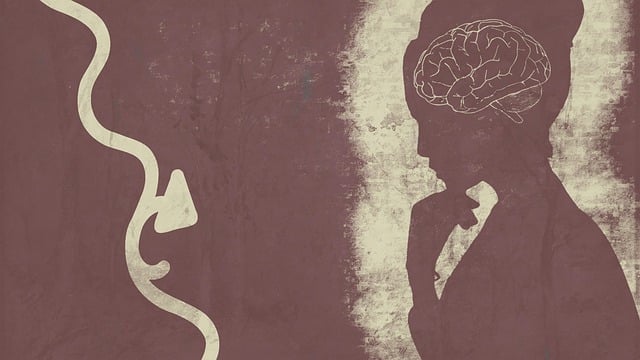Lone Tree Acceptance and Commitment Therapy (ACT) offers a compassionate and expert approach to understanding and managing grief, helping individuals accept emotions, cultivate present-moment awareness, and set personal growth goals. This method, combined with stress management workshops and mental wellness journaling, promotes resilience, improves self-esteem, and rediscovers purpose during bereavement. By normalizing grief and educating communities on ACT-based coping strategies, public awareness campaigns can significantly support those navigating loss. Healthcare providers integrating these practices can also prevent burnout, enhancing their ability to aid others through challenging times.
Loss, grief, and bereavement are universal experiences that can profoundly impact an individual’s well-being. This comprehensive article delves into these complex emotions, offering a detailed overview of understanding loss, grief, and bereavement. We explore the therapeutic potential of Lone Tree Acceptance and Commitment Therapy (ACT) in addressing these challenges. By examining common obstacles faced during the grieving process, we provide strategies for healing and finding meaning after loss. Discover practical insights to navigate this delicate journey towards restoration.
- Understanding Loss, Grief, and Bereavement: A Comprehensive Overview
- The Role of Lone Tree Acceptance and Commitment Therapy (ACT) in Counseling
- Common Challenges Faced During the Grieving Process
- Strategies for Healing and Finding Meaning After Loss
Understanding Loss, Grief, and Bereavement: A Comprehensive Overview

Understanding loss, grief, and bereavement is a complex journey that requires compassion and expertise. It involves acknowledging the unique experience of each individual as they navigate through the stages of coping with a significant loss. The process often begins with recognizing and accepting one’s emotions—a crucial step facilitated by approaches like Lone Tree Acceptance and Commitment Therapy (ACT). This therapeutic method encourages individuals to embrace their feelings, fostering resilience and personal growth.
Grief is a natural response to loss, manifesting in various ways. It can be overwhelming, impacting every aspect of an individual’s life, including self-esteem and mental wellness. To support this challenging period, tools such as stress management workshops, mental wellness journaling exercises, and guidance from supportive communities play a vital role in the healing process. These resources enable individuals to develop healthy coping mechanisms, enhance self-esteem, and rediscover a sense of purpose.
The Role of Lone Tree Acceptance and Commitment Therapy (ACT) in Counseling

The Lone Tree Acceptance and Commitment Therapy (ACT) offers a unique perspective on grief counseling, focusing on helping individuals accept their emotions and find meaning in their experiences. This therapeutic approach encourages clients to cultivate present-moment awareness, allowing them to understand and process their grief without judgment. By promoting positive thinking and values clarification, ACT helps bereaved individuals set goals aligned with their personal growth and well-being.
In the context of loss and grief, ACT provides effective communication strategies for both counselors and clients. It teaches individuals to observe their thoughts and feelings without getting entangled in them, fostering a sense of detachment that can aid in managing intense emotions. Moreover, this therapy emphasizes the importance of taking action consistent with one’s values, which can be instrumental in preventing burnout during the grieving process.
Common Challenges Faced During the Grieving Process

The grieving process is a deeply personal journey filled with unique challenges for every individual. One common struggle many face is what to do with the profound sense of loneliness that often accompanies loss. This isolation can be exacerbated by cultural expectations and societal norms, especially in cases where individuals prefer to grieve privately. The absence of support networks or understanding from those around them can prolong the suffering, making it difficult for the bereaved to navigate their emotions effectively.
In these moments, integrating practices like Lone Tree Acceptance and Commitment Therapy (ACT) can be immensely beneficial. ACT encourages individuals to accept their emotions without judgment, fostering a deeper connection with themselves. By cultivating emotional intelligence and embracing mind over matter principles, grievers can develop resilience and learn to manage their feelings more adaptively. Public awareness campaigns development that normalizes grief and educates communities on these coping strategies could further support those navigating bereavement.
Strategies for Healing and Finding Meaning After Loss

Healing from loss is a deeply personal journey, and finding meaning can be transformative. One effective approach gaining traction in this field is Lone Tree Acceptance and Commitment Therapy (ACT). ACT encourages individuals to accept their emotions rather than fighting them, fostering a sense of inner peace. By embracing the present moment and committing to actions aligned with personal values, one can navigate grief while pursuing meaningful goals. This process helps individuals move forward without forgetting but also learning to live alongside the loss.
Additionally, participating in Stress Management Workshops Organization activities can offer valuable support. These workshops provide tools for managing anxiety, a common symptom of bereavement. Techniques such as mindfulness meditation and cognitive reframing can help individuals gain perspective on their grief and reduce its intensity. Furthermore, healthcare providers dealing with burnout prevention strategies can find relief through these practices, enabling them to better support others experiencing loss.
Grief is a complex process, and seeking professional support can be transformative. This article has explored various aspects of loss, grief, and bereavement, offering insights into the healing journey. The discussion on Lone Tree Acceptance and Commitment Therapy (ACT) highlights its effectiveness in helping individuals navigate these challenging emotions. By understanding common challenges and implementing strategies like ACT, one can find solace and meaning after a significant loss. Remember, recognizing and accepting one’s grief is the first step towards healing, and professional counseling can provide much-needed guidance during this difficult time.














